Bioethics: Analysis of Stem Cells - Science, Policy and Ethics Paper
VerifiedAdded on 2023/06/13
|6
|1193
|151
Summary
AI Summary
This assignment provides a summary of the research article "Stem Cells: Science, Policy, and Ethics," which explores the potential of human embryonic stem cells for regenerative medicine and the ethical debates surrounding their use. The article highlights the scientific community's interest in stem cells' ability to repair damaged tissues and restore cellular function. It addresses the controversy arising from the destruction of preimplantation embryos to create new stem cell lines, focusing on the moral status of embryos and the need for informed ethical debate. The summary covers key concepts such as stem cell properties, adult and embryonic stem cells, somatic cell nuclear transfer, and current regulations. It also delves into ethical considerations, including differing views on when life begins and the importance of distinguishing between adult and embryonic stem cells. The author concludes by emphasizing the need for collaborative efforts among scientists, policymakers, and the public to navigate the complex ethical and scientific challenges in stem cell research, which is hindered by the current governmental regulations. Desklib is a platform where you can find many such solved assignments.
1 out of 6
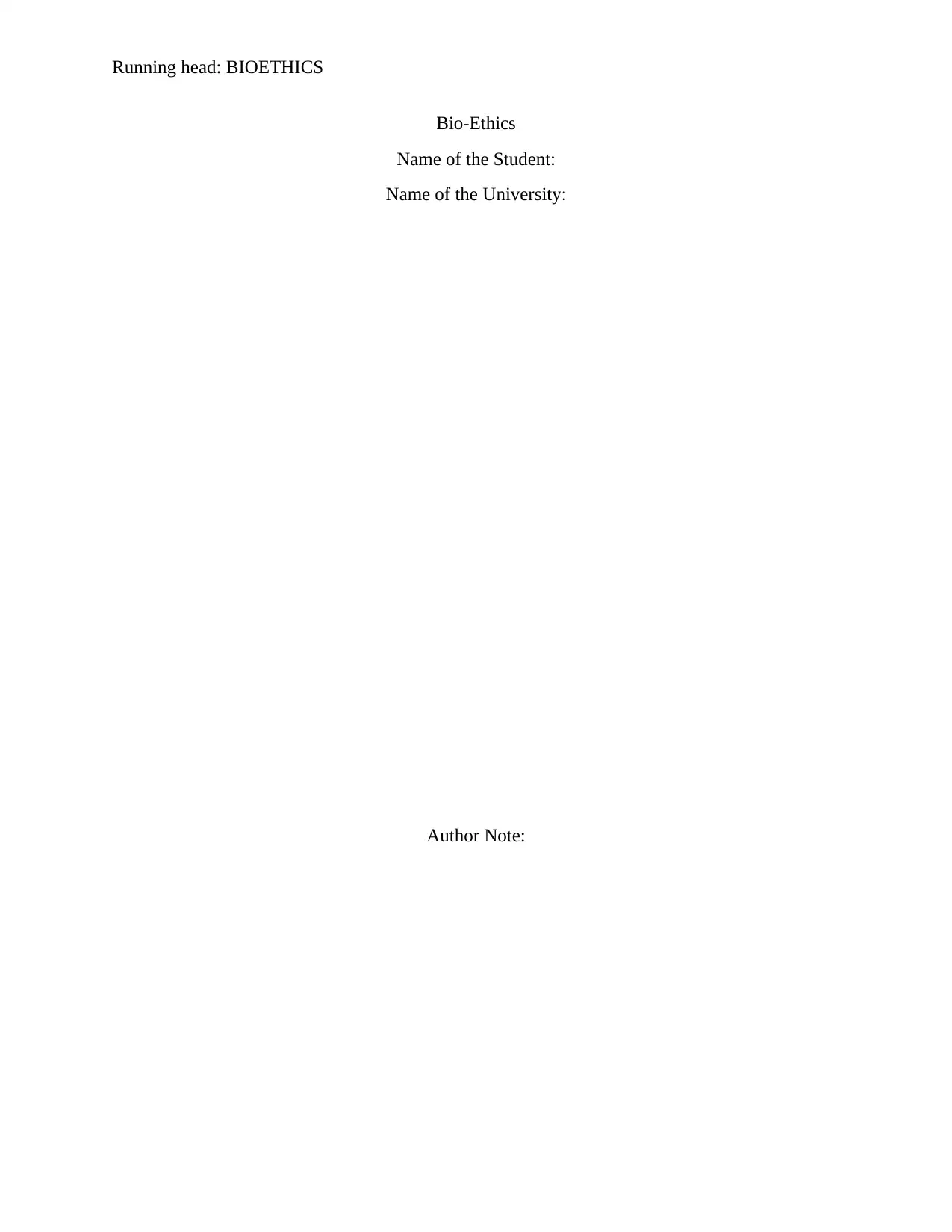
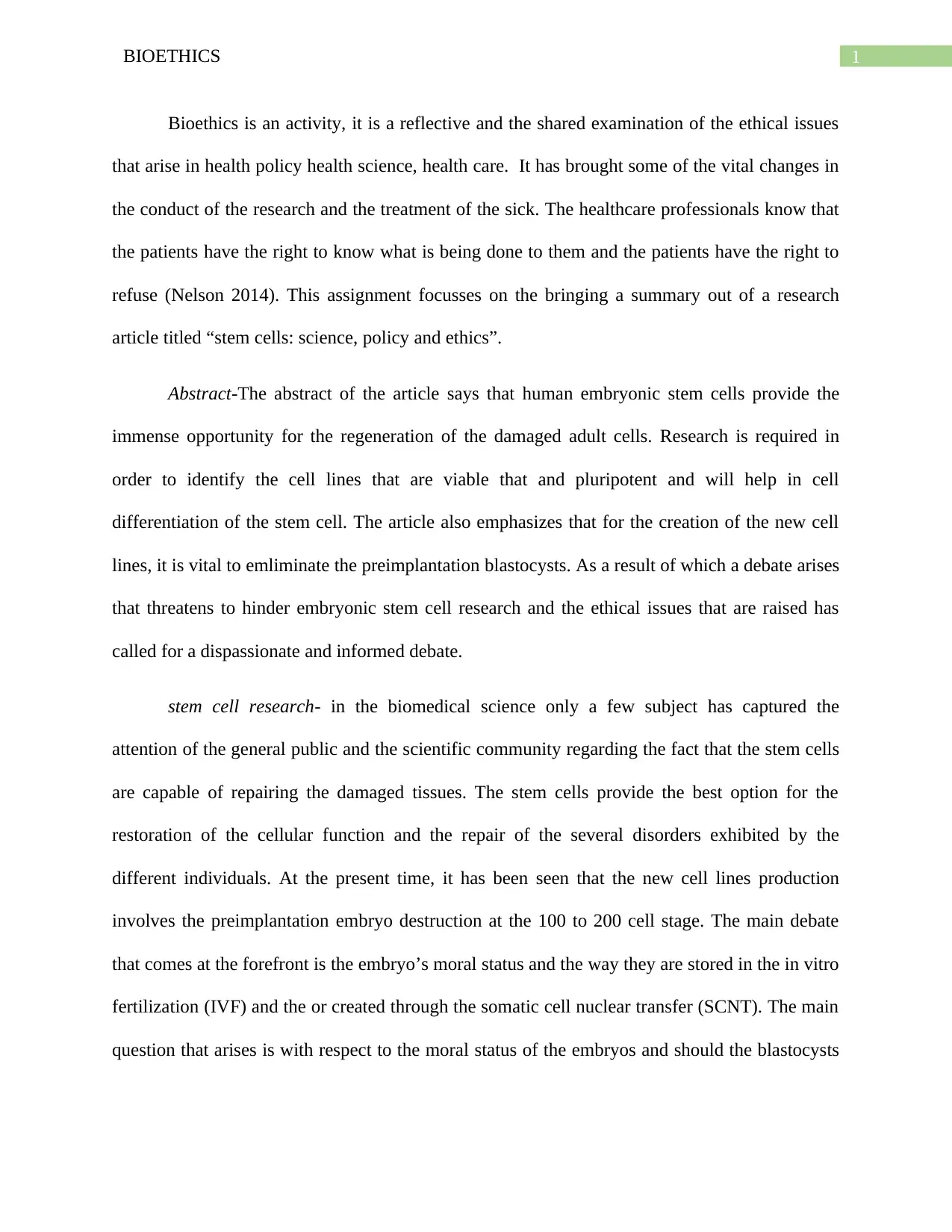
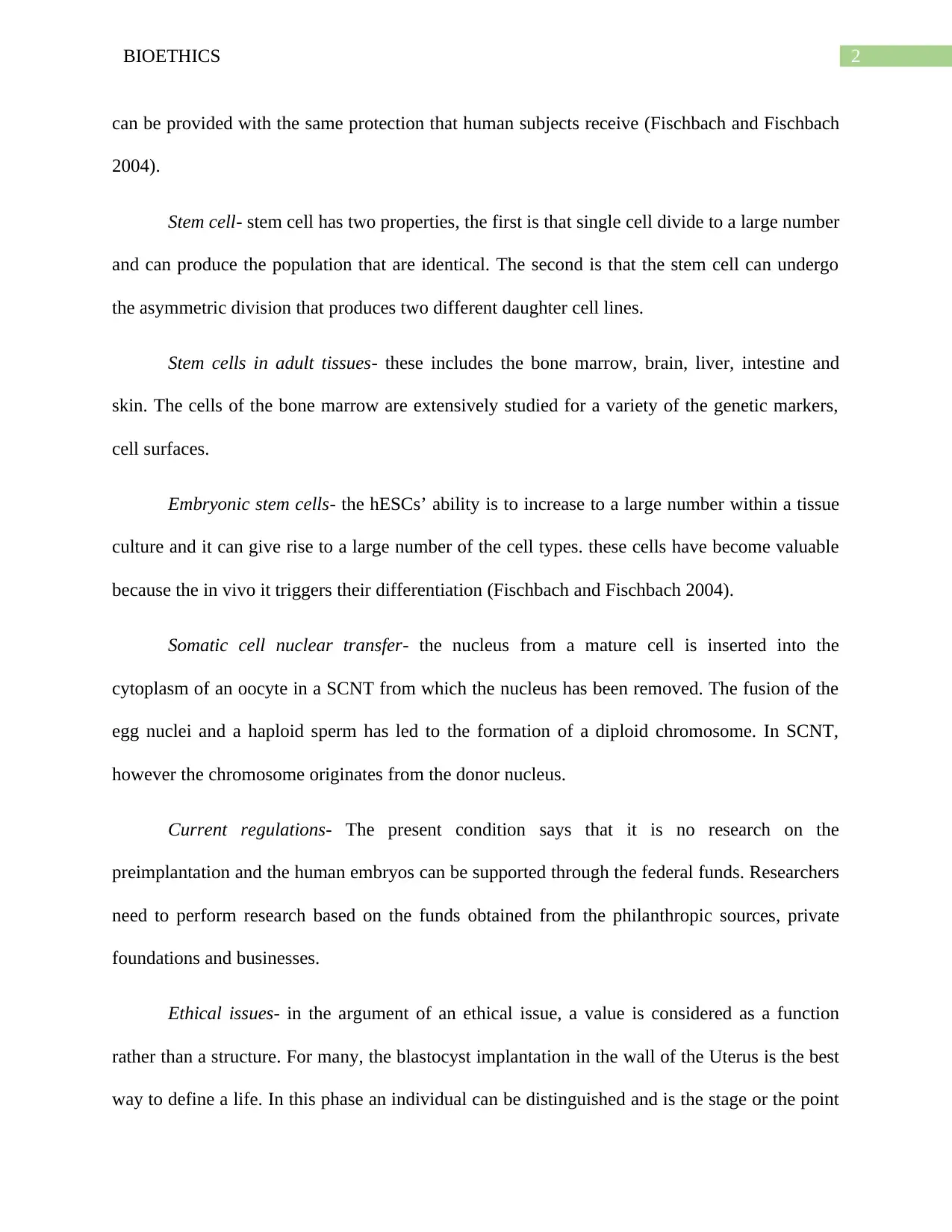

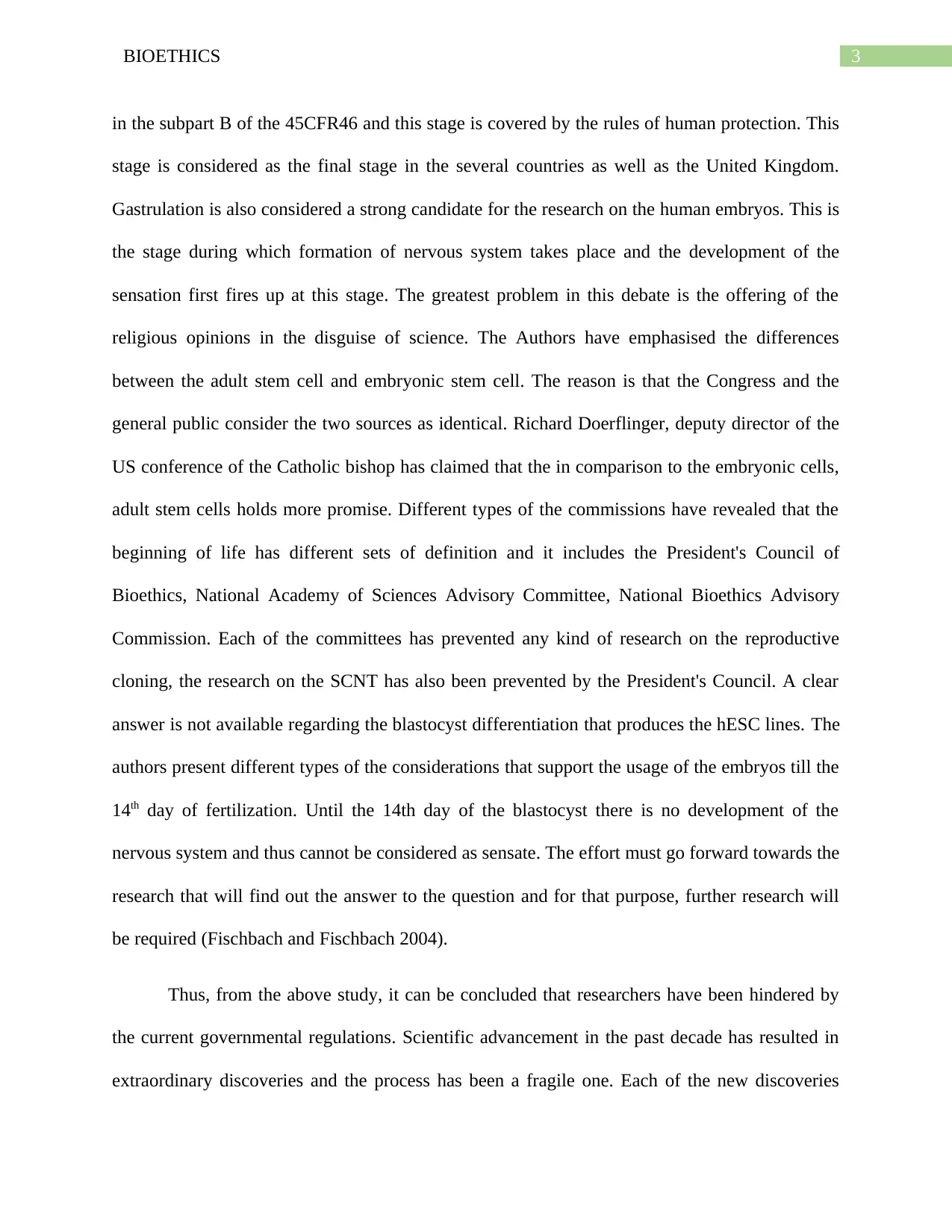
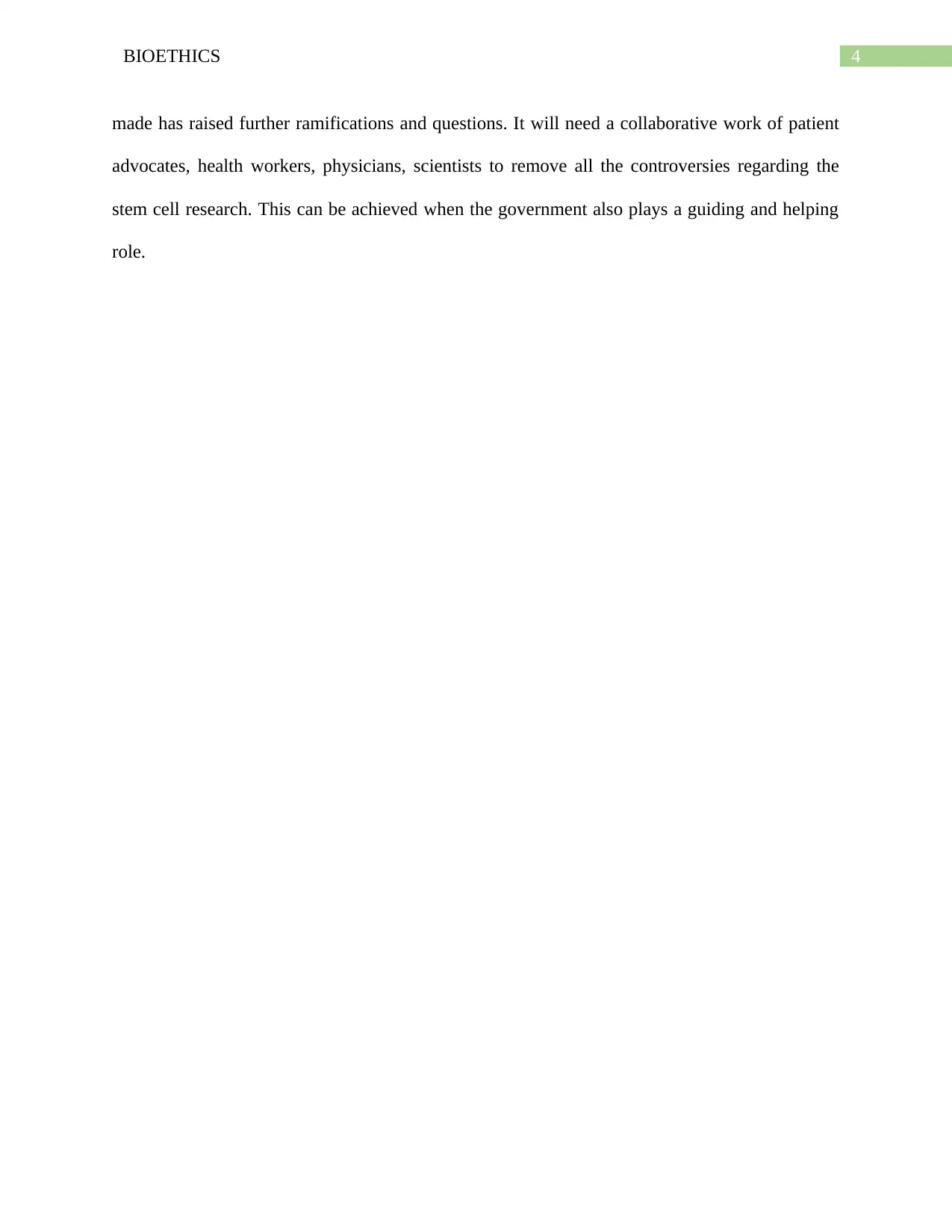
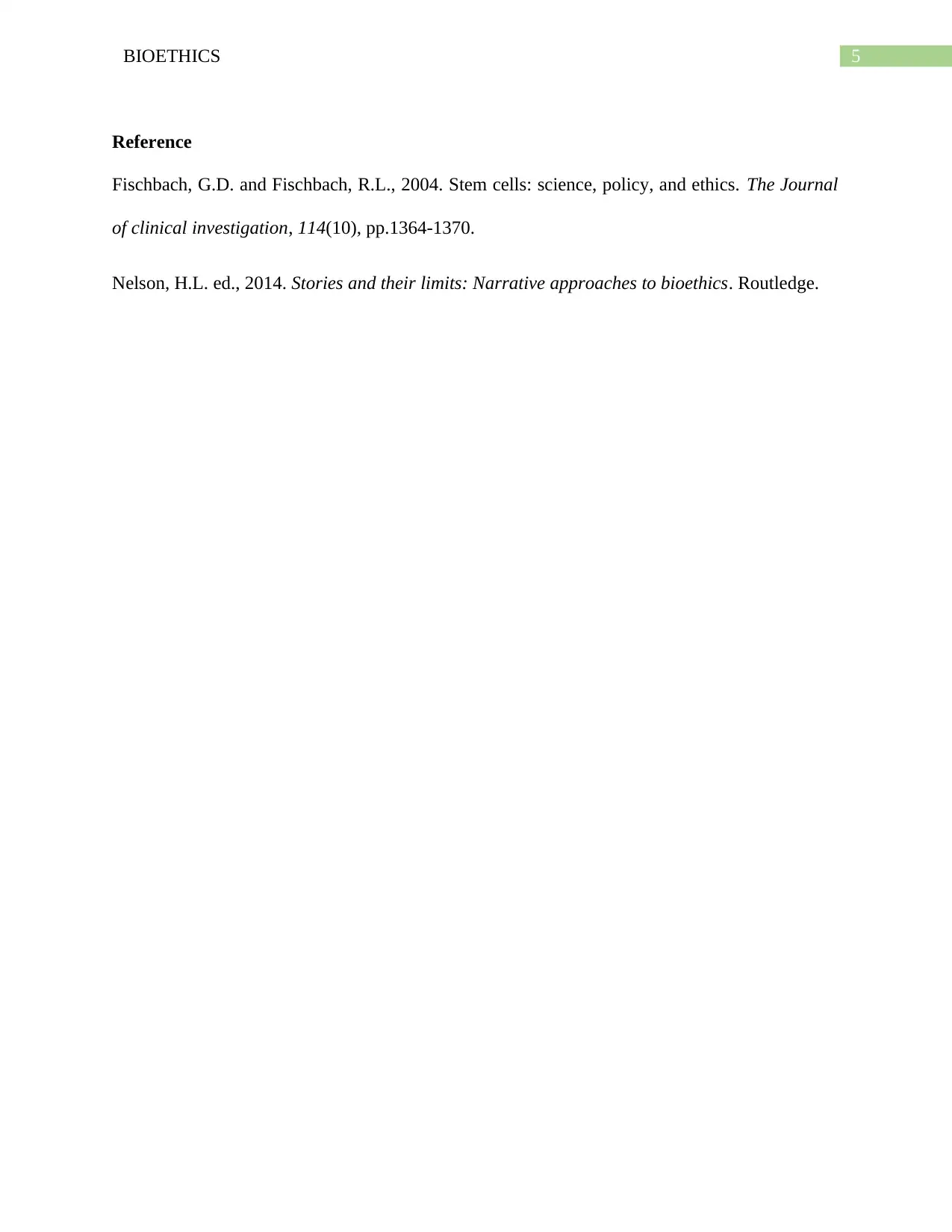




![[object Object]](/_next/static/media/star-bottom.7253800d.svg)